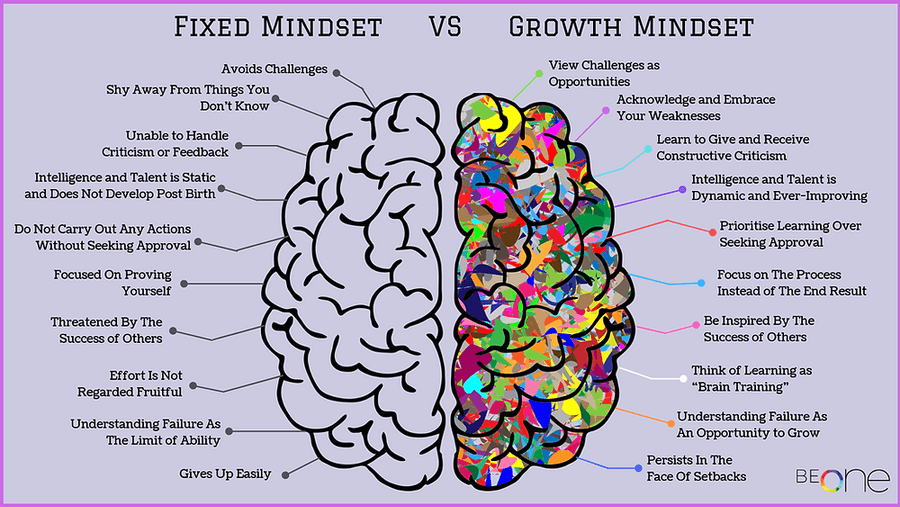Fixed mindset vs. growth mindset
People with a fixed mindset think intelligence, character, and creative potential are unchangeable attributes that come from birth. They also assume that success is the result of this inherent talent. They tend to avoid failure to avoid looking fallible.
People with a growth mindset do not look at failure as a reflection of their ability, but rather as a starting point for testing ideas.
726
2.75K reads
CURATED FROM
IDEAS CURATED BY
The idea is part of this collection:
Learn more about personaldevelopment with this collection
How to create a productive workspace at home
How to balance work and personal life while working remotely
How to maintain focus and motivation while working remotely
Related collections
Similar ideas to Fixed mindset vs. growth mindset
Fixed vs. Growth Mindset
Growth Mindset:
- tend to understand basic abilities as malleable, and believe they can be developed over time.
- love new challenges and view setbacks as opportunities to learn.
- display better self-esteem, more resilie...
Fixed vs. Growth mindset
- When success means being smart and failure being dumb, it stunts potential & possibilities in life. Growth mindset helps you love challenges, learn from mistakes, enjoy effort, seek new strategies, and keep learning....basically the main ingredients for
1. Build a Growth Mindset
Research by psychologist Carol Dweck suggests that there are two basic mindsets that influence how people think about themselves and their abilities: the fixed mindset and the growth mindset.
Read & Learn
20x Faster
without
deepstash
with
deepstash
with
deepstash
Personalized microlearning
—
100+ Learning Journeys
—
Access to 200,000+ ideas
—
Access to the mobile app
—
Unlimited idea saving
—
—
Unlimited history
—
—
Unlimited listening to ideas
—
—
Downloading & offline access
—
—
Supercharge your mind with one idea per day
Enter your email and spend 1 minute every day to learn something new.
I agree to receive email updates


